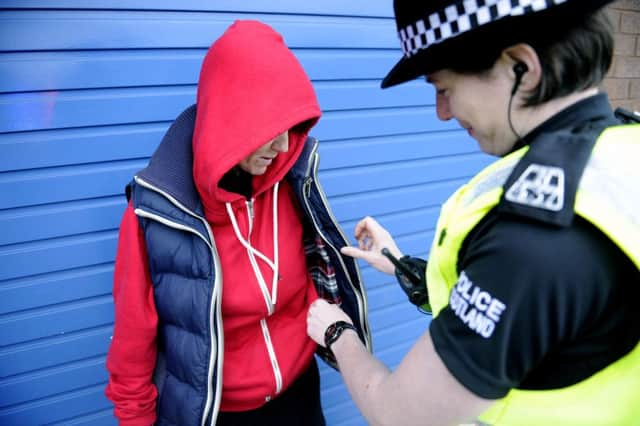Chris Marshall: Alter stop & search to regain trust


Led by the respected human rights lawyer John Scott, the group is expected to make a recommendation on whether the use of non-statutory stop and search should be abandoned altogether.
The controversial practice, sometimes referred to as “consensual” stop and search, has been the subject of much controversy over the past few months since it emerged that young children were still being searched, despite assurances given by senior officers.
Advertisement
Hide AdAdvertisement
Hide AdLast week the United Nations became the latest body to raise concerns about the tactic.
The UN’s Human Rights Committee said it was worried about the use of consensual stop-search in a manner which is “allegedly unlawful and disproportionate”. It called on the Scottish Government to outlaw the practice.
That astonishing intervention was followed by a report from charity Barnardo’s which claimed that young men who refuse to give consent for police searches were more likely to be mistreated by officers during future encounters.
The charity said many young people do not know their rights and fear that by refusing a search they will receive “stronger punishment” from the police.
All the suggestions are that the advisory group will call for a cessation of non-statutory stop and search, at least for young people.
Police Scotland has already confirmed there is now a presumption against consensual searches for all ages, with children under the age of 12 not subject to non-statutory searches at all.
The difficulty for the police is that stopping the practice leaves them without the ability to search for alcohol, a gap senior officers have called for new legislation to fill.
There was a time earlier this year when stop and search was the biggest controversy Chief Constable Stephen House faced.
Advertisement
Hide AdAdvertisement
Hide AdSadly for the chief, that controversy has been overtaken by recent events.
The death in custody of Kirkcaldy man Sheku Bayoh and the fallout from the M9 crash which claimed the lives of Lamara Bell and John Yuill look set to overshadow everything else the force has to deal with currently.
But stop and search is one area where Police Scotland can appear proactive.
The force must know that its days of stopping huge numbers of young people – often with very little foundation – are coming to an end.
It’s time for it to take steps now in order to prepare for a future where effective policing is once again built on consent and public trust.